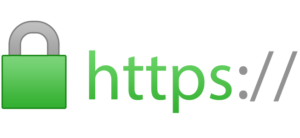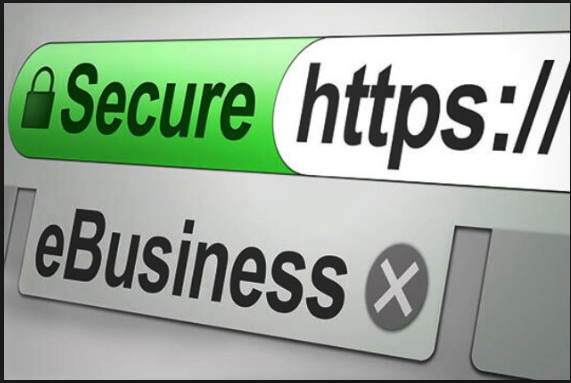HOW TO GET FREE SSL FOR YOUR WEBSITE OR BLOG
Incorporating an SSL certificate on a website is an exceptional and perhaps the only way to secure a connection between the web server and the web browser. From a website owner’s point of view, the SSL certificates play a significant role. The SSL certificates can contribute to the success of a website because of the tons of benefits that they offer.
SSL Certificate is an indispensable part of web security
Gone are the days when SSL certificates were considered to be a luxury. In today’s age where hackers are always lurking, and users are more vigilant than ever, securing a website using an SSL/TLS certificate is nothing but a norm that everyone has to follow. If you have a website, you have an SSL – it’s as simple as that! This is because an SSL certificate accomplishes two of the most significant requirements from the security point of view – Authentication and Encryption
The difference between HTTP and HTTPS may seem like only one letter, but that one letter can make a huge impact in your website’s performance. Let’s talk about HTTPS and what it means for your small business.
What Is HTTPS?
HTTPS is a way to encrypt information that you send between a browser and a web server. This protects your website’s users from “man-in-the-middle” attacks, where someone steals the information being sent to a website, like credit card information or logins.
Historically, HTTPS connections have primarily been used for sites that contain sensitive information, but you’ve probably seen more and more sites making the switch lately. As HTTPS has become easier to implement, secure connections are becoming the standard for all websites.
What Is an SSL Certificate?
An SSL Certificate is a set of data files that you can add to your server to achieve an encrypted connection between a browser and your server. When installed, a green padlock will be displayed when users visit your site to indicate that the site is secure.
![]()
What’s the Difference Between SSL and HTTPS?
You may have heard the terms “SSL” or “SSL Certificate” used interchangeably with HTTPS. For the most part, these are the same. An SSL certificate is the product that you are actually purchasing and installing on your server, and HTTPS is the result of having that certificate on your server.
Why SSL?
The Intent of utilizing SSL Certificates
SSL is the backbone of the secure Internet and it safeguards your sensitive data as it travels across the planet’s computer networks. SSL is vital for safeguarding your site, even though it does not manage sensitive info like credit cards. It offers privacy, crucial security and information integrity for your sites and your customers’ personal info.
Advantages of Using SSL on your website
5 REASONS YOUR SITE SHOULD BE HTTPS

SSL Encrypts Sensitive Information
The principal reason SSL is employed is to maintain sensitive data sent across the Internet encrypted so that only the intended receiver can understand it. This is vital because the information that you send on the web is passed from computer to computer before arriving at the destination server. Any computer in between you and the server can see your credit card numbers, usernames and passwords, and other sensitive information if it is not encrypted with an SSL certificate. Once an SSL certification is employed, the data gets unreadable to everyone but for the server you’re sending the data to.
SSL Offers Authentication
In addition to encryption, a suitable SSL certificate also provides authentication. As a consequence, that you can make certain you are sending info to the correct server and not to an impostor attempting to steal your data.
Why is this significant?
The nature of the web means your clients will often times be sending info through several servers. One or more of these computers may pretend to be your own site and deceive your customers into sending them private info. It is only possible to avoid this by using an accurate Public Key Infrastructure (PKI), and getting an SSL Certificate from a trusted SSL provider.
Why are SSL providers important?
Trusted SSL suppliers will only issue an SSL certificate to some confirmed firm that’s gone through numerous identity checks. Certain kinds of SSL certificates, such as EV SSL Certificates, need more validation than many others.
Increased Conversions
While users may not have a complete technical understanding of secure connections, they do understand that they want a site to be HTTPS if they are providing personal information.
Internet browsers provide visual cues, including a lock icon or even a green bar, to ensure people know when their connection is secured. This usually means they will trust your site more when they view these cues and are more inclined to purchase from you.

We already see a difference in conversion rates between HTTP and HTTPS sites. But, after Google rolls out their new HTTP labeling, we will probably see an even larger difference in conversion rates between the two.
More On Google HTTP labeling

Google announced it is making changes to how Chrome, their web browser, labels HTTPS and HTTP sites in the future. Starting in September 2018, Google will be removing the “Secure” wording and HTTPS scheme in Chrome version 69. Plus, in July 2018 in Chrome version 68, Chrome will mark all HTTP sites as “not secure.”
Here is how the Chrome treatment for HTTPS pages will change:

Then, in October 2018 with Chrome version 70, Google will start showing the red “not secure” warning when users enter data on HTTP pages. Google said, “Previously, HTTP usage was too high to mark all HTTP pages with a strong red warning.” But the pendulum has swung to HTTPS, and now it feels comfortable going forward with this change.
Here is a GIF of this in action in Chrome 70 for HTTP pages with user input:

Currently, HTTP sites are marked with a gray information symbol that tells the user the site is not secure if they click on it. Sometime this year, Google is going to update that to include a “Not Secure” label that is displayed in plain sight, rather than after a user clicks on the information symbol.
While this new label only means that your site is not HTTPS, users don’t fully understand that, and many will likely feel a sense of unease from seeing that label on a site they are browsing.
When users see those red labels, something as simple as entering a name, email, and phone number into a basic lead generation form can cause anxiety and concern for users.
SSL Offers Trust – Having SSL on your site would Increase Customer Confidence
With all of the buzz about HTTPS going around, more users are specifically looking for a secure connection when visiting a website.
A secure connection gives your customers peace of mind that your website can be trusted and their information is safe.
SSL service providers will also supply you with a confidence seal that instills more confidence in your clients.
HTTPS also protects against phishing attacks
A phishing email is an email sent by a criminal who tries to impersonate your website.
The email usually contains a URL to their own site or utilizes a man-in-the-middle attack to use your domain. As it’s extremely tough for those criminals to be given a proper SSL certificate, they will not have the ability to absolutely impersonate your website. This usually means your users will probably be less inclined to fall for a phishing attack since they’ll be on the lookout for the trust signs in their browser, like a green address bar, and they won’t see it.
SSL is required for PCI Compliance
If you are thinking of accepting credit card info on your site, you have to pass through some particular audits that indicate that you’re complying with all the Payment Card Industry (PCI) standards. Among those prerequisites is correctly utilizing an SSL Certificate.
Increased Google Rankings
Over 40% of the sites on the first page of Google are HTTPS, which is not a surprise since Google has confirmed that they favor HTTPS sites.
Google wants to ensure the best user experience for their customers, so understandably they don’t want to send searchers to insecure sites. Because of that, their ranking algorithm favors HTTPS sites. If your site isn’t secure, it could be getting outranked by similar sites that are.
Now you see how important it is to have SSL installed on your website.
HOW DO YOU INTEGRATE FREE SSL ON YOUR WEBSITE?
When you purchase any hosting package from Bluehost, you will get free auto SSL on your hosting account. It is activated automatically once you purchase your hosting account and it auto-renews every 3 months.
WHAT YOU GET WHEN YOU HAVE SSL INSTALLED ON YOUR WEBSITE
- Higher Online Sales
- Fewer Refunds
- Better Conversion Rates
- Improved ROI
- Higher Click-Through Rate
- Reduce Bounce Rate
- Less Shopping Cart Abandonment
- Increased Customer Confidence
- More visits by the same shopper
- Increased Customer Loyalty
- Increased awareness and confidence in your brand
Sign up for a Bluehost account by Clicking on this link https://goo.gl/BrukKj And get 60% DISCOUNT OFF With 30-Day Money-Back Guarantee
Instill TRUST in your Website & Brand with an SSL Certificate!
Make your website secure with an SSL Certificate. You will receive a “Green Padlock Secure” at the beginning of your URL and turn it from http to https once you purchase a hosting plan from Bluehost
It’s crucial that you correctly use SSL on all your website sites. Appropriate usage of SSL certificates can help safeguard your clients, help shield you, and enable you to gain your clients’ trust and sell more.



Great!!